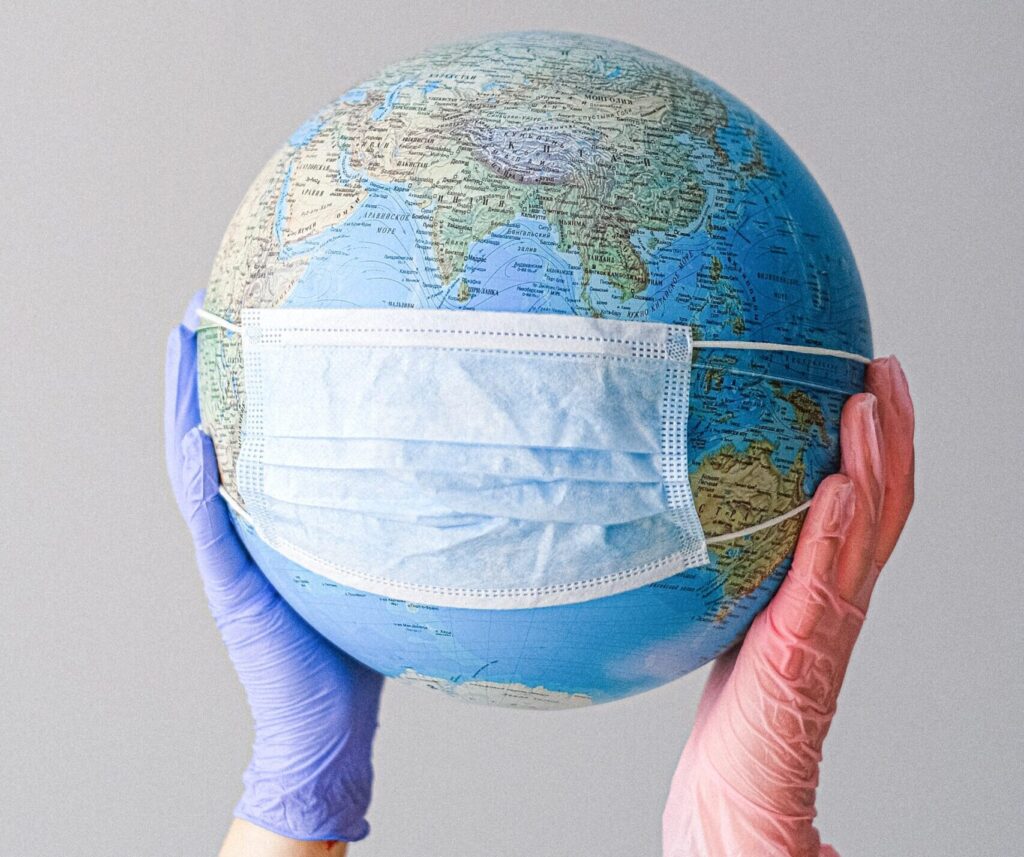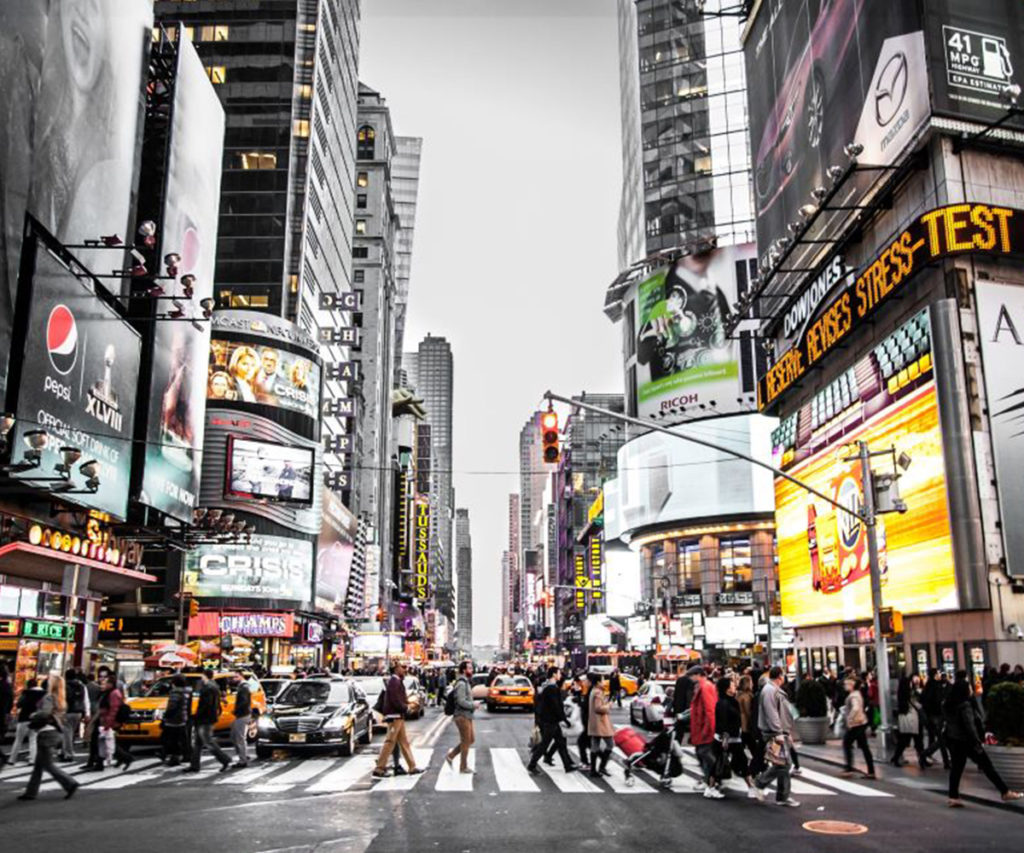The Psychological Costs of COVID-19
At age 42, Dr. Vivek Murthy, former Surgeon General of the United States, still vividly remembers that night 35 years ago, when he was woken up by his mother and put into the family car. They were driving to a trailer park in Miami – a patient of his father’s had died that night, Murthy was told, and his parents wanted to be there to grieve with the widow. The importance of human connection, which his parents taught him in his formative years, would later lead Murthy to become a physician, and to make a case for loneliness as a public health concern in his book, Together: The Healing Power of Human Connection in a Sometimes Lonely World.
In the earlier stages of pandemic lockdown, musicians in Italy took to their balconies to perform for their neighbors. In Spain, a fitness instructor led a class on his rooftop to encourage his neighbors to stay active. In Hong Kong, volunteers are making weekly phone calls to the elderly to provide emotional support. From a pandemic that has led to a third of the world’s population in some kind of home confinement, we are again realizing just how important human connection is.
This reckoning is more than just a cognitive process. All over the world, we are now seeing how deprivation of meaningful social connection can lead to an increase in loneliness. But loneliness is by no means the only mental health challenge that comes as an undesirable consequence of COVID-19. People from all walks of life are experiencing economic loss, different kinds of grief, stress and sleep disruption, and fear of becoming unwell. All this could contribute to mental health conditions such as anxiety and depression.
Particularly vulnerable are those already suffering from depressive disorder, and frontline healthcare professionals. Working 12-hour shifts to try to contain the virus, often finding themselves in the position to comfort people who can’t visit their loved ones for one last time, healthcare workers are mentally and physically ill-equipped to handle the “moral injury” they experience due to insufficient protective gear and triage procedures, not to mention the negative emotions arising from having to isolate themselves from their families. In China, among the 1,257 healthcare professionals working with COVID-19 patients, 50.4% reported symptoms of depression, 44.6% symptoms of anxiety, 34% insomnia, and 71.5% distress.
There is a strong case for promoting good mental health with the same vigor seen in promoting physical health: people with mental health disorders are more susceptible to infections. We can no longer afford to ignore the interconnectedness of mental and physical wellness.
Take loneliness for example. It turns out that, despite different circumstances, the way our nervous system reacts to being separated from people isn’t all that different to our hunter-gatherer ancestors’. When we feel socially isolated, we enter an elevated stressed state, which, when prolonged, can lead to a higher level of inflammation in our body, and increased risk of chronic diseases like heart disease. In fact, Julianne Holt-Lunstad, a psychologist at Brigham Young University, has found from a meta-analysis of 148 studies that the mortality impact of loneliness is similar to smoking 15 cigarettes a day.
Perhaps less known is the power of physical touch in boosting the wellbeing of body and mind. According to Tiffany Field, founder of the Touch Research Institute at the University of Miami, physical touch enhances serotonin (a “happy chemical” found in our body that contributes to wellbeing and happiness) and lowers the levels of cortisol (a stress hormone that can harm the “natural killer cells” that attack viral, bacterial, and cancer cells).
While some countries or cities are already reopening their economies or gradually relaxing physical distancing measures, mental health problems could persist long after the current public health crisis is over, as was the case with health workers on the front lines of the SARS outbreak. In our fight against the novel coronavirus, we must also address loneliness, anxiety and depression, which can lead to a rise in alcohol and drug addiction, gambling, homelessness, and relationship breakdown. Here are a few things we can all do to stay mentally well:
-
Stay Well-informed and Limit News Exposure: Coronavirus charts can be misleading and exacerbate anxiety levels. Be prudent with the amount of time you spend on reading the news every day, and get your information from credible sources such as the WHO or this platform set up by the University of Hong Kong.
-
Stay Connected: Physical distancing measures shouldn’t stop us from connecting socially. Phone your friends and family, by all means join virtual happy hour or game nights. While video-conferencing is an efficient way to stay connected with coworkers, beware of “Zoom fatigue”.
-
Stay Physically Active: Exercise improves both physical and mental health. For those who can’t exercise outdoors, get creative with these Olympic athletes’ home workout tips.
-
Practise Mindfulness: Embrace solitude and include in your daily schedule the time for meditation, which can help you find peace of mind and boost the immune system.
-
Express Gratitude: Finding things in life that you’re grateful for doesn’t mean ignoring the challenges and struggles. High levels of gratitude can lead to high levels of optimism, lower levels of stress and depression, better physical health and immune system response.
-
Help Others: Former US Surgeon General Vivek Murthy calls service the “antidote to loneliness”, and there is a scientific explanation for it. Studies have shown that helping other people, be it volunteering, donating money, or offering advice, can help us better cope with our own challenges and build resilience.
-
Share Your Experience: Provided that you’re comfortable with it, sharing your experience with others can provide a source of hope for people undergoing similar experiences. Coolminds, co-created by Mind HK and KELY Support Group, has such an initiative for young people in Hong Kong.
COVID-19 is a crisis that also offers us the opportunity to rethink the future we want. Already, mental health experts across the world are calling for more innovative monitoring and protection measures for mental health, such as telemedicine and virtual healthcare tools. Worldwide, mental ill-health has been an issue of concern before COVID-19. For example, research conducted in 2019 found that mental health in Hong Kong hit its lowest level in eight years. With our deepened realization of the interconnectedness of physical and mental health, ignoring the importance of the latter will put us in a disadvantageous position to prevent the next public health crisis.
Lessons Learned from Hong Kong
City Mental Health Alliance – Hong Kong (CMHA HK) is an FSI portfolio company that works to create mentally healthy workplaces in Hong Kong. We spoke to Dr. Zoe Fortune, its Chief Executive Officer, on the lessons learned from Hong Kong during the pandemic.
FSI: In the second issue of CMHA HK’s COVID-19 Weekly Bulletin, you mentioned that more organizations in Hong Kong are now talking about mental health – any examples?
Zoe Fortune: Many companies are recognizing the importance of good mental health as well as the fact that this is a stressful, difficult and anxiety-provoking time for many. We are working with many companies but two specific examples I can provide are from some case studies that we did with our members.
One CMHA HK member, Oliver Wyman, had a number of mental health and wellbeing initiatives in the pipeline but re-prioritized given the urgency of COVID-19. These initiatives included: mental health training for all partners and HR teams, creating content for their wellness hub on their intranet and setting up a mental health first responder team, and publishing the team members’ names and pictures, which allowed people who may need to talk about mental health issues the opportunity to do so.
Finally, they also launched “Home Together”, which had the aim to ensure that each person in the firm speaks to someone about something non work-related each week. Kirsty Hill from Oliver Wyman told us, “It’s a nice way for people to feel connected to the business and for us to also spot if people are not doing so well.”
Another member, Edelman, told us that the current stress and uncertainty have made their mental health plan efforts even more of a priority. They updated their medical insurance to cover mental health, identified mental health champions, and released a number of practical resources to support their employee’s mental health.
FSI: Using your children greeting the people on your conference calls as an example, you said that teams are getting to know each other differently outside of work. Specifically how is that going to create a work culture that promotes mental health or open discussions of it?
Zoe Fortune: Barriers seem to have been broken down by the nature of remote working and all being in the same situation. This may have created a space for people to get to know each other on a personal level, and provided the environment needed to have open discussions around mental health in the workplace. The global focus on mental health in the media has meant that the topic has moved higher up the agenda within organizations.
We encourage companies to use COVID-19 as a positive and continue to talk about mental health in the workplace. Everyone being in this together has shown some extraordinary examples of kindness and empathy, and we hope that it continues beyond COVID-19.
For more resources on the good practices of promoting mental health in the workplace, visit CMHA HK’s website or subscribe to their COVID-19 Weekly Bulletin.
Talk to Us
What are the challenges you’re facing and how are you coping during COVID-19? Send us an email on info@shared-impact.com and share your stories with us!



